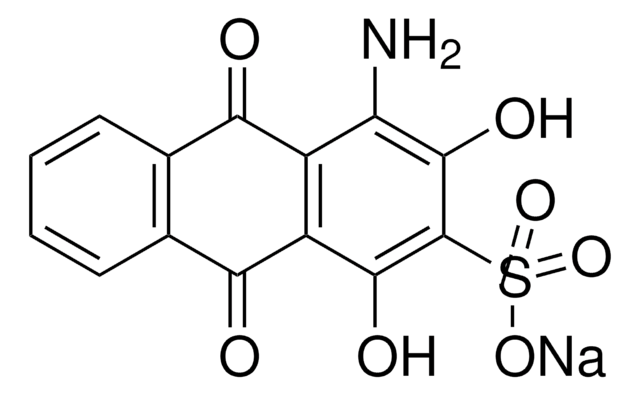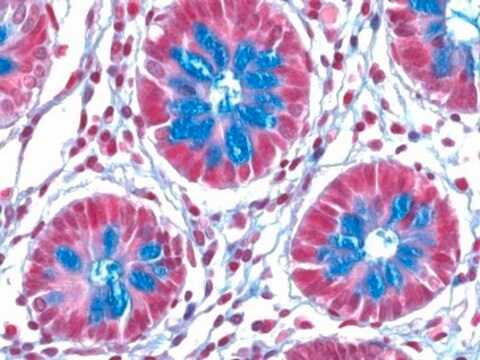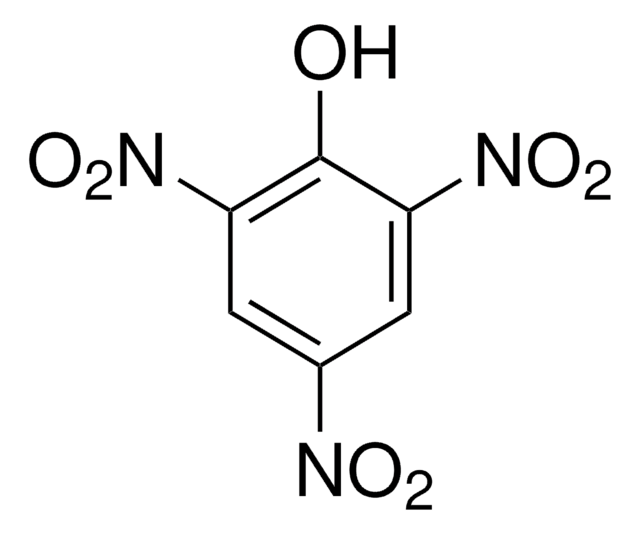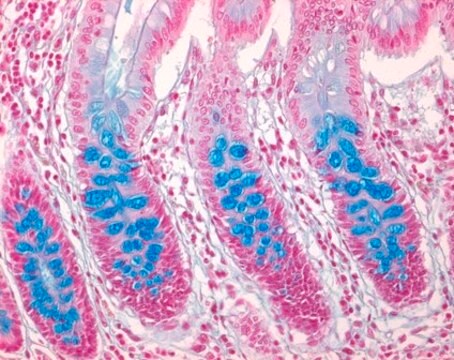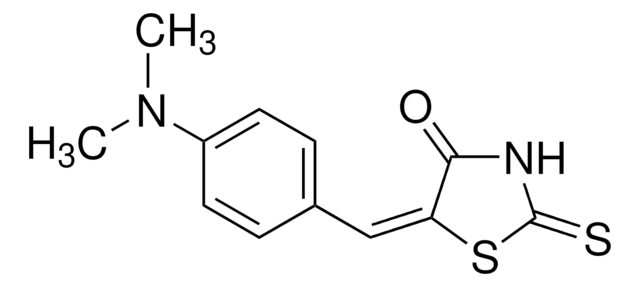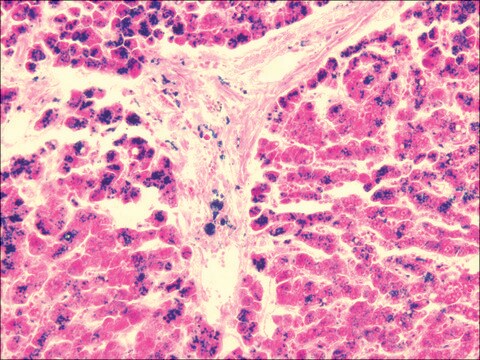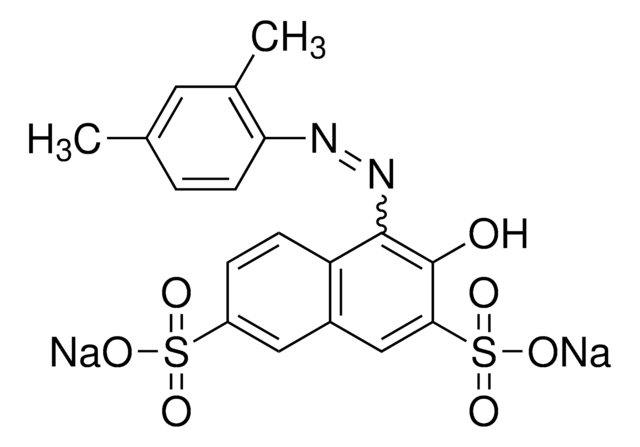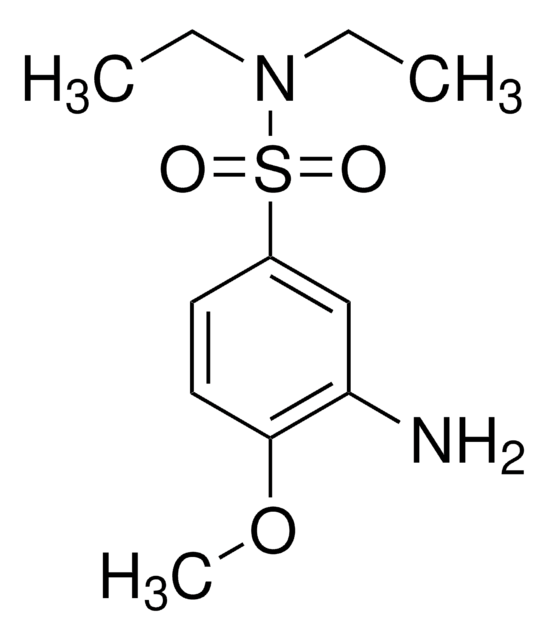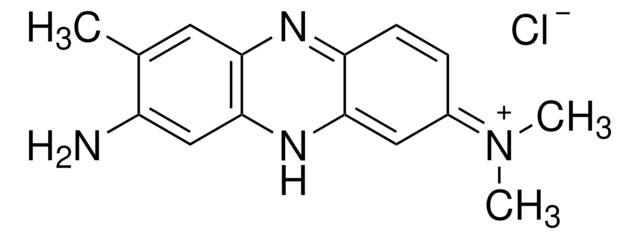60700
Nuclear Fast Red
for microscopy (Bot., Hist.)
Synonym(s):
4-Amino-9,10-dihydro-1,3-dihydroxy-9,10-dioxo-2-anthracenesulfonic acid sodium salt
About This Item
Recommended Products
grade
for microscopy (Bot., Hist.)
Quality Level
form
powder
technique(s)
microbe id | staining: suitable
solubility
methanol: water (1:1): 0.01 g/10 mL, red
εmax
≥275 at 550-560 nm in DMSO
≥300 at 516-526 nm in DMSO
application(s)
diagnostic assay manufacturing
hematology
histology
storage temp.
room temp
SMILES string
[Na+].Nc1c(O)c(c(O)c2C(=O)c3ccccc3C(=O)c12)S([O-])(=O)=O
InChI
1S/C14H9NO7S.Na/c15-9-7-8(12(18)14(13(9)19)23(20,21)22)11(17)6-4-2-1-3-5(6)10(7)16;/h1-4,18-19H,15H2,(H,20,21,22);/q;+1/p-1
InChI key
IFSXZLJQEKGQAF-UHFFFAOYSA-M
Looking for similar products? Visit Product Comparison Guide
General description
Application
- staining sperm and spermatids in semen
- identifying areas for PCR analysis in paraffin-embedded tissues
- nuclear counterstaining following immunostaining and silver staining
Biochem/physiol Actions
Principle
Legal Information
Storage Class Code
11 - Combustible Solids
WGK
WGK 3
Flash Point(F)
Not applicable
Flash Point(C)
Not applicable
Personal Protective Equipment
Regulatory Listings
Regulatory Listings are mainly provided for chemical products. Only limited information can be provided here for non-chemical products. No entry means none of the components are listed. It is the user’s obligation to ensure the safe and legal use of the product.
JAN Code
60700-VAR:
60700-25G:
60700-BULK:
60700-5G:
Certificates of Analysis (COA)
Search for Certificates of Analysis (COA) by entering the products Lot/Batch Number. Lot and Batch Numbers can be found on a product’s label following the words ‘Lot’ or ‘Batch’.
Already Own This Product?
Find documentation for the products that you have recently purchased in the Document Library.
Customers Also Viewed
Our team of scientists has experience in all areas of research including Life Science, Material Science, Chemical Synthesis, Chromatography, Analytical and many others.
Contact Technical Service